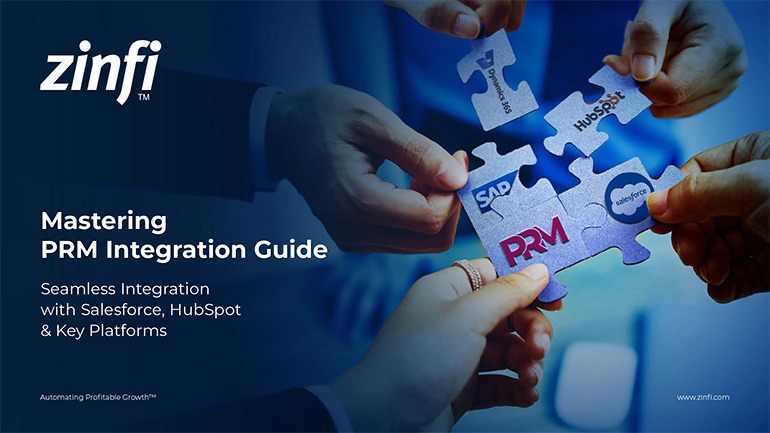Glossary - How to - Distributor Marketing Strategies
How to Develop Effective Distributor Marketing Strategies?
Introduction
Understanding Distributor Marketing Strategies
Distributor marketing strategies refer to business techniques and approaches to promote, support, and enhance their relationships with distributors. These strategies ensure distributors have the tools, incentives, and knowledge to market and sell products effectively. In a partner ecosystem, distributor marketing is crucial because distributors bridge the gap between manufacturers and end consumers, helping brands expand their reach, increase sales, and improve brand awareness.
Effective distributor marketing strategies help companies manage their supply chain, optimize product positioning, and improve revenue generation. Organizations in competitive markets that align their marketing efforts with distributor capabilities can achieve better penetration, build stronger partnerships, and drive sustainable growth.
The Role of Automation in Distributor Marketing
With the rise of partner management automation, organizations can now streamline and optimize their distributor marketing strategies. Partner Relationship Management (PRM) platforms are crucial in automating marketing efforts, ensuring consistency, and enabling data-driven decision-making. PRM solutions help businesses track distributor performance, provide real-time analytics, automate incentive programs, and deliver personalized marketing content. By leveraging automation, organizations can enhance distributor engagement, improve collaboration, and ensure alignment between marketing strategies and sales objectives.
Key Takeaways:
Develop a Strong Distributor Engagement Plan:
Distributor engagement is a crucial element of any marketing strategy. Businesses must establish a clear engagement plan that includes:
- Regular Communication: Ensure continuous interaction through newsletters, webinars, and meetings.
- Training Programs: Educate distributors on product features, value propositions, and target markets.
- Incentives and Rewards: Implement loyalty programs, rebates, and discounts for motivation.
- Exclusive Access to Marketing Resources: Provide customized marketing assets, including brochures, product videos, and case studies.
By fostering a collaborative relationship, companies can ensure their distributors are well-equipped and motivated to sell their products effectively.
Leverage Digital Marketing Strategies for Distributors:
Digital marketing is a powerful tool for driving distributor sales and engagement. Key strategies include:
- Co-Branded Marketing Campaigns: Allow distributors to personalize marketing materials while maintaining brand consistency.
- Search Engine Optimization (SEO): Optimize distributor websites with relevant keywords to drive organic traffic.
- Social Media Marketing: Enable distributors to use social media platforms to promote products and engage customers.
- Email Campaigns: Provide ready-to-use email templates to distributors for outreach and follow-ups.
By integrating digital marketing, businesses can ensure that their distributors effectively reach their target audiences.
Implement Data-Driven Marketing Approaches:
Data-driven marketing allows businesses to track distributor performance and optimize strategies based on analytics. Key aspects include:
- Performance Metrics: Monitor distributor sales data, lead conversions, and customer engagement.
- CRM Integration: Connect distributor activities with customer relationship management tools.
- Market Segmentation: Use analytics to segment distributors and tailor marketing efforts accordingly.
- Feedback Mechanisms: Implement surveys and feedback forms to gather distributor insights.
Businesses can refine their marketing strategies and improve distributor collaboration by leveraging data analytics.
Strengthen Distributor Training and Enablement:
Empowering distributors with knowledge and resources enhances their ability to sell effectively. Best practices include:
- On-Demand Training Modules: Offer e-learning courses and video tutorials.
- Product Demonstrations: Conduct live demos and virtual walkthroughs.
- Sales Playbooks: Provide step-by-step guides on product positioning and customer engagement.
- Certification Programs: Recognize distributors who complete advanced training sessions.
An educated distributor network results in higher sales conversion rates and stronger brand loyalty.
Align Marketing Strategies with Sales Goals:
Distributor marketing efforts must align with overall sales objectives. Strategies include:
- Joint Business Planning: Collaborate with distributors to set sales targets and marketing goals.
- Lead Distribution Systems: Implement fair and effective lead-sharing mechanisms.
- Cross-Promotion Opportunities: Leverage distributor networks for upselling and cross-selling.
- Automation Tools: Use PRM platforms to integrate marketing automation with distributor sales activities.
By aligning marketing and sales efforts, businesses can create a seamless experience for distributors and boost revenue.
Summary of Key Takeaways:
- Developing distributor engagement plans ensures collaboration and motivation.
- Leveraging digital marketing enhances distributor outreach and brand consistency.
- Using data-driven marketing helps optimize distributor performance.
- Strengthening distributor training improves sales efficiency and customer engagement.
- Aligning marketing with sales goals ensures a unified approach to growth.
Key Examples:
- Automotive Manufacturing: Automotive companies work with distributors to market spare parts, accessories, and vehicle models. Implementing targeted co-branded marketing campaigns helps distributors promote the latest models effectively.
- Consumer Electronics: In the electronics industry, training distributors on new product features and offering online promotional tools helps increase brand awareness and sales.
- Energy Production: Energy companies use distributor partnerships to promote sustainable energy solutions. Providing distributors with localized marketing materials ensures region-specific outreach.
- Financial Services: Financial institutions partner with distributors to market investment products. A data-driven approach helps track distributor performance and optimize lead conversion.
- Food and Beverage: Co-branding and digital marketing campaigns enable food distributors to showcase new products and seasonal offerings.
- Healthcare Services: Medical device manufacturers provide distributors comprehensive training and compliance guidelines to ensure regulatory adherence and sales effectiveness.
- Information Technology: IT firms use PRM platforms to automate distributor training and lead management, ensuring faster go-to-market execution.
- Pharmaceutical Development: Pharmaceutical companies offer exclusive incentives to distributors, motivating them to push specific medications and healthcare products.
- Retail Industry: Retail brands rely on distributors for product placements. Providing marketing resources and digital tools enhances distributor-led campaigns.
- Telecommunications: Telecom providers equip distributors with automated customer engagement tools to promote new services effectively.
Conclusion:
Distributor marketing strategies are crucial in ensuring business success in partner ecosystems. Companies must engage distributors through communication, digital marketing, data analytics, training, and sales alignment to maximize their effectiveness. By leveraging PRM platforms and automation tools, organizations can streamline distributor collaboration, optimize marketing efforts, and drive higher sales growth. Implementing these strategies across various industries ensures businesses maintain competitive advantages, sustaining long-term distributor relationships.
Associated Keywords:
- Distributor Sales Strategy
- Channel Marketing Best Practices
- Distributor Engagement Techniques















